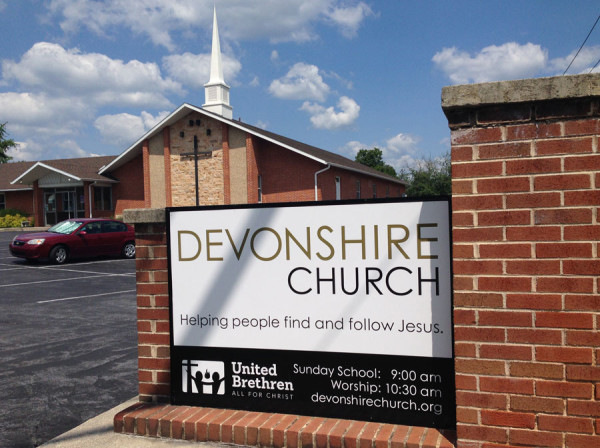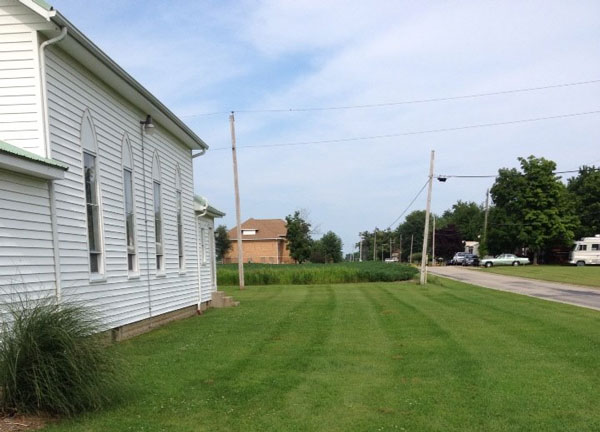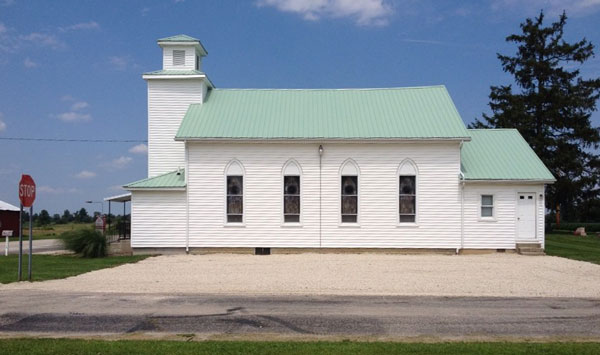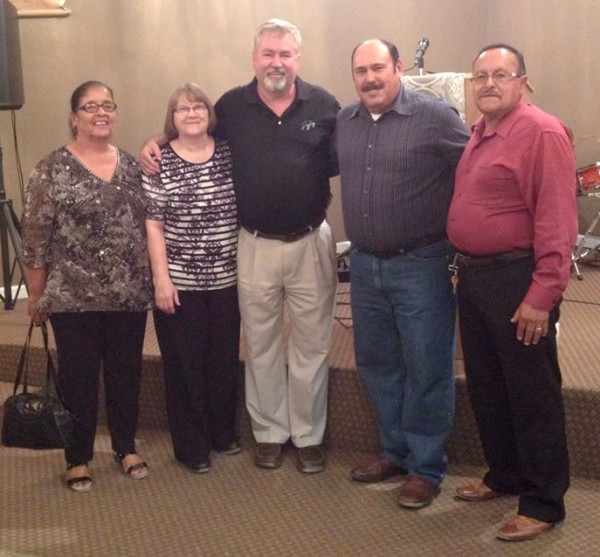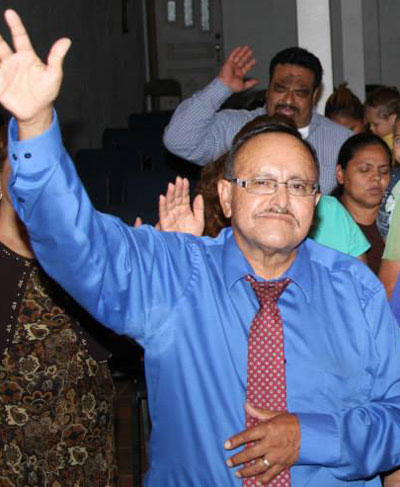August 15, 2014
|
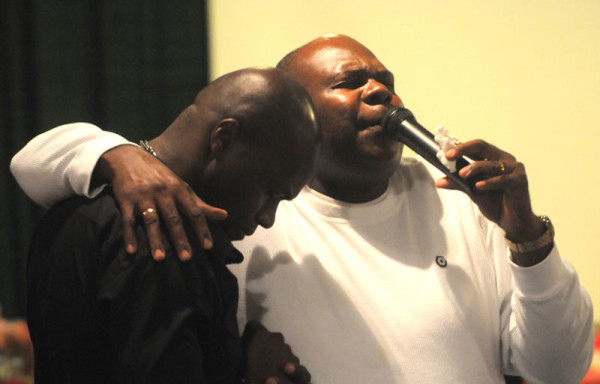
Pastor Gener Lascase ministers to a member at Salem United Brethren Church during worship service. (Photo by Ryan Blackwell — Public Opinion)
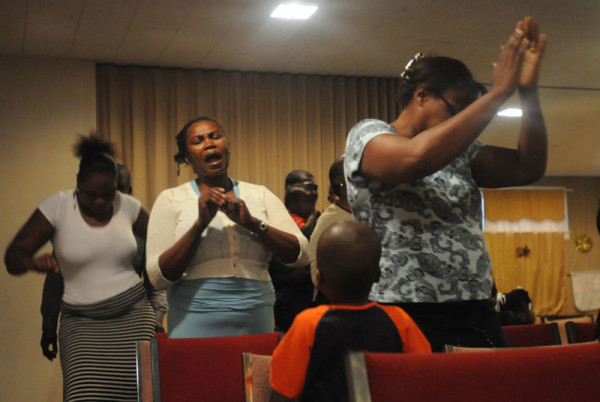
Pastor Lascase’s congregation feels the spirit. (Photo by Ryan Blackwell – Public Opinion)
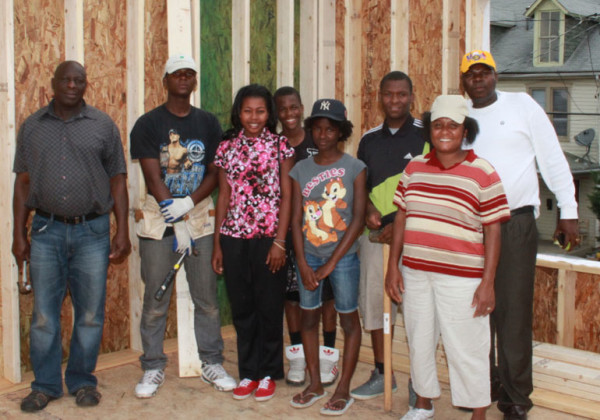
The Lascase family is busy helping finish a Habitat for Humanity home in Chambersburg, which they will be moving into. Left to right: friend of family and volunteer Eliavme Louis Charles; Lascase son Jonathan, daughter Syndy, son Davidson, daughter Sooyann, son Meatchacson, mother and wife Aurore, and Pastor Gener Lascase. (Photo by Frieda Stayman – For Public Opinion)
As jobs dwindle in Florida, more Haitians are making their way north up the East Coast.
Pastor Gener Lascase is one who started in Florida, but had to search elsewhere for employment. In 2008, he found himself in Chambersburg for the first time.
Lascase said that for years, Florida remained a base for workers to find jobs while still remaining close to Haiti. They would farm corn, sugar and more, but in recent years those jobs have dried up.
After the earthquake in 2010, many Haitians, including Lascase, decided to move from their country. In 2010, he was one of the first Haitians to come to Franklin County. Now, the population in Chambersburg is about 450 souls, and growing every season.
Lascase felt a spiritual and religious calling to settle in Pennsylvania.
 Lascase had been in contact with Pastor Jason Bakker (right), the associate pastor at Salem United Brethren Church. At the same time Lascase made the decision to move to the area, Bakker and the church had an opening in one of their buildings. Bakker said he felt it was a sign that Lascase could use the space as a Sunday school for Haitians, which had been lacking in the community.
Lascase had been in contact with Pastor Jason Bakker (right), the associate pastor at Salem United Brethren Church. At the same time Lascase made the decision to move to the area, Bakker and the church had an opening in one of their buildings. Bakker said he felt it was a sign that Lascase could use the space as a Sunday school for Haitians, which had been lacking in the community.
Lascase said he had around seven people in his first class. The next week, he had two more. Now, four years later, they have outgrown the upstairs section of the Salem United Church, and moved to a space at the Second Lutheran Church, 240 E. Washington St.
Lascase said he now has up to 75 people attending Sunday school classes, and can expect around 65 to 75 people in church for services every Sunday.
The services are performed mostly in Creole, as “every Haitian speaks Creole” as well as a mix of other languages. However, English is spoken among the congregation as well.
As more Haitians are expected in the area, Lascase said he will continue to reach out to them and spread his faith.
“He’s a man who is (and) has the utmost integrity,” Bakker said about Lascase. “He has very strong conservative convictions about what the Bible teaches and how it applies today.”
Affirming Community
Jean Claude Benoit, 50, is one of the church members Lascase entrusts to assist in prayer leadership. He arrived in Chambersburg after the earthquake.
Benoit still works in the family-owned orchards next to the Salem United Brethren Church. Lascase said many people, once they settle in Chambersburg, change from being farm workers to warehouse workers. Benoit is not one of those people.
“I like it! I like not having to wake up early,” Benoit said. While Lascase said many workers coming from Haiti are not highly skilled, Benoit said he used to work in technology and machinery in Haiti.
However he found the jobs were better in the United States.
“(Chambersburg) is a nice place, it’s a good place for people looking for jobs,” Benoit said.
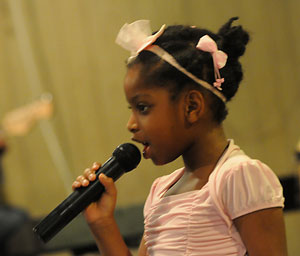
Even the youngest congregation members sing praises during Pastor Lascase’s sermon. (Photo by Ryan Blackwell – Public Opinion)
Benoit and Lascase have helped lead the community through prayers, despite the ever-present language barrier that keeps the Haitian community separate from the greater Chambersburg community. Benoit said that for people like himself, who were able to go to school while growing up, language was a focus of their education.
“We love languages. Spanish, French, English,” he said. “The more you know.”
He also learned Latin growing up, but for him, like the rest of his countrymen, Creole is his first language.
“They didn’t have a common language,” Benoit said of the people who helped build Creole. “They were from different tribes. There are misspellings, misuse of the conventions of other languages.”
Slowly, Beniot said, they have reformed the language and are beginning to build more structure to the language in recent years.
“Communicating is difficult,” Beniot said. “For the ones who have skills, they are in a good place. When they come here, they can be hired. With the language barrier, it creates a problem at work.”
Benoit said that he works with Lascase and others to help Haitians interpret when they need it, and teach them to understand so that those people can pass it on.
While they continue to deal with the language problem, there haven’t been community leaders besides Lascase to build them up and bring them together. “I think it’s necessary to affirm yourself as a Haitian community,” Benoit said.
For now, Benoit will continue to assist with the church, and lead services when Lascase cannot. In all, he said he hopes they can educate the community into having real leaders on all fronts, whether church or business.
Helping Hands
Although many Haitians have lived and worked in Florida for years before coming to Chambersburg, they possess very little when they get here. Lascase had to find a place for himself, his wife and five children to live.
Bakker and his church assisted Lascase in moving to Chambersburg, and have continued to do so with other new families.
“When they get here, they try to find a house,” Lascase said. He then helps them make contact with possible jobs, helps them with applications to work and then assists them with getting their kids into schools and eventually buying cars.
The Salem United Brethren Church members assist them by providing some of the same services to people newer to the community.
Bakker said that they’ll offer people use of the church’s food pantry, and help them find furniture and move into wherever they are staying.
However, Lascase remains the leader of their assistance to the community, Bakker said.
“As Lascase has been acquainted, he’s been able to help out with the families,” Bakker said. “He also knows what companies are currently hiring.”
Lascase said that every day he helps the newer arrivals get settled, outside of his normal tasks as a church pastor.
“Every day, if I finish work at 4, I’m still working at 10,” Lascase said.
“Haitians, the first thing they’re doing is working to pay their bills,” Lascase said. “You work and put money (toward paying) your bills.”
Past that, Lascase will then help educate the community members on family dynamics, changing what many of them are used to.
“Men don’t know how to help the wife — they think she’s got to work, clean, cook, while they watch TV,” Lascase said. “That’s not right. We teach them to clean, cook.”
To him, the family aspect is vital for the community members’ success with each other and their church relationship.
“I say, if the family is not right, the church is not right,” Lascase said.
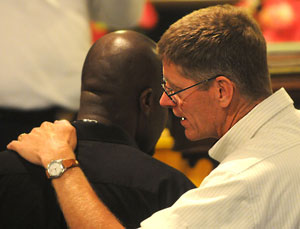
Art Page, senior pastor of Salem UB church, with Pastor Lascase. (Photo by Ryan Blackwell – Public Opinion)
Sharing His Beliefs
If there’s one problem in building the Haitian community locally, Lascase said, it’s that as a religion-based leader, he doesn’t have as many chances to reach out to Haitians who are not religious.
“It’s hard to meet all of them,” Lascase said, “Some of them just don’t go into church.”
Of the 450 or more Haitians in the area, Lascase said he sees around 120 people at his largest services. Week to week, he will see around 65-75 people, and he’ll see the larger group when he has special guest speakers from Hagerstown or other areas.
For the ones who don’t attend church, Lascase said people often don’t practice any religion. In Haiti, there is a large Christian following, Lascase said, which makes outreach easier to people who do practice the religion. Lascase said he still tries to find ways to reach out to the rest of the community.
This Fourth of July, Lascase and his family held a party and invited as many people from the Haitian community as they could. Lascase said his party was somewhat successful, and he was able to meet more of the community, and he looks forward to trying again.
Lascase said more people are coming from Florida every harvest season, including others who knew him as a religious leader.
“God needed me to do something in Chambersburg,” Lascase said. “God wants me to start a ministry in Chambersburg. God knows many Haitians are going to be in this area.”
 Christine Scroggs (right), Eagle Quest Church (Columbia City, Ind.)
Christine Scroggs (right), Eagle Quest Church (Columbia City, Ind.)
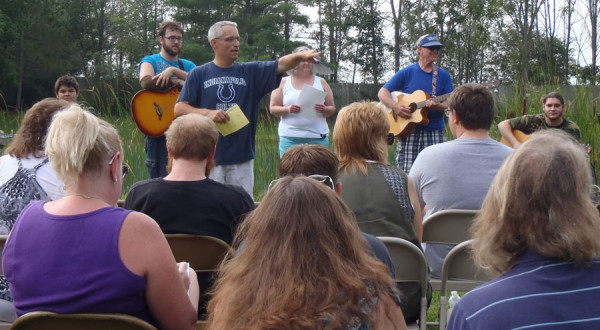
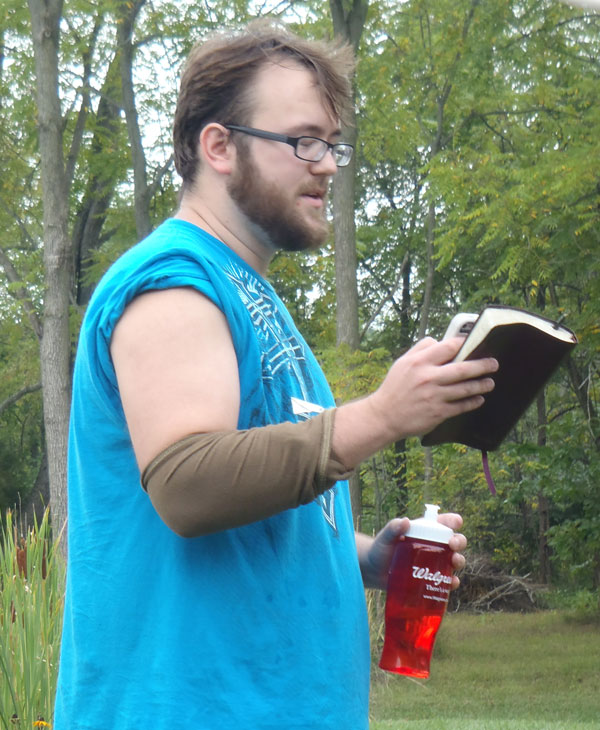
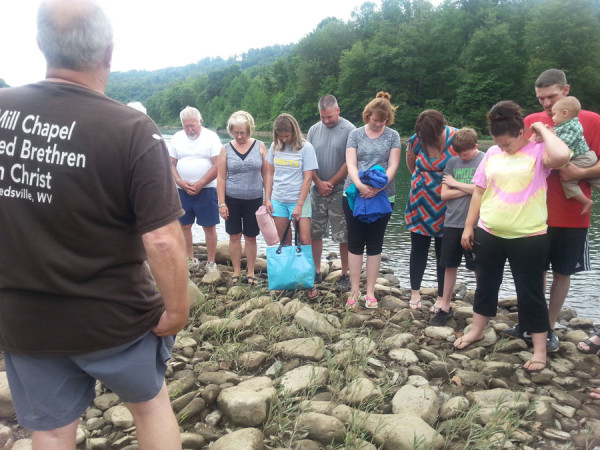
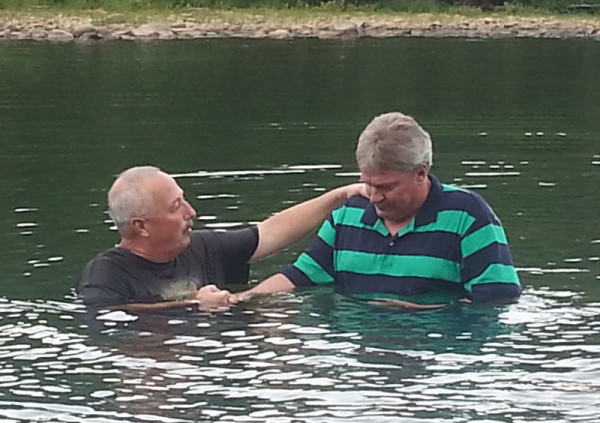
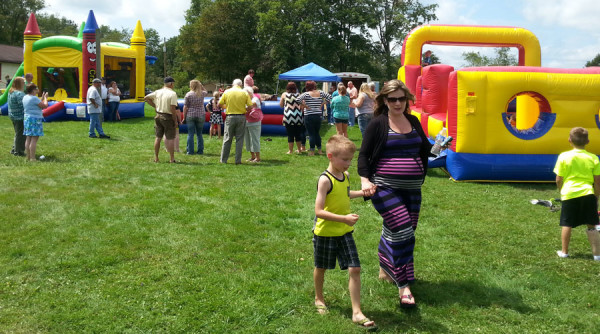
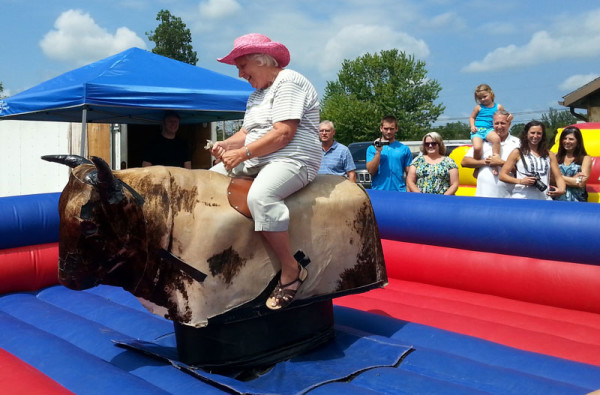
 Marshall Woods (right), senior pastor, Mill Chapel UB church (Reedsville, W. Va.)
Marshall Woods (right), senior pastor, Mill Chapel UB church (Reedsville, W. Va.)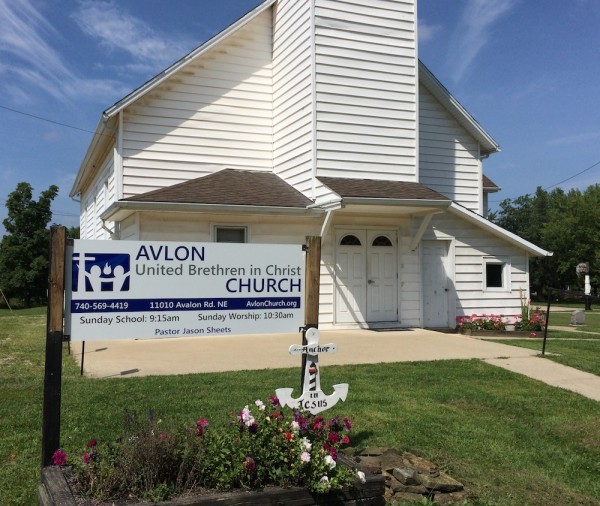



 Lascase had been in contact with Pastor Jason Bakker (right), the associate pastor at Salem United Brethren Church. At the same time Lascase made the decision to move to the area, Bakker and the church had an opening in one of their buildings. Bakker said he felt it was a sign that Lascase could use the space as a Sunday school for Haitians, which had been lacking in the community.
Lascase had been in contact with Pastor Jason Bakker (right), the associate pastor at Salem United Brethren Church. At the same time Lascase made the decision to move to the area, Bakker and the church had an opening in one of their buildings. Bakker said he felt it was a sign that Lascase could use the space as a Sunday school for Haitians, which had been lacking in the community.

